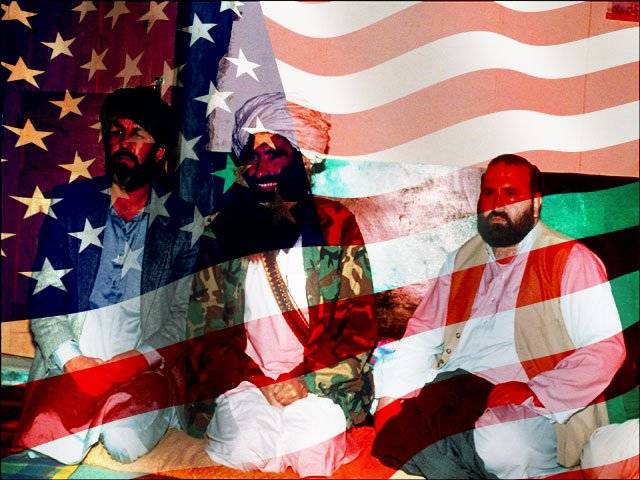U.S. officials this summer secretly met with leaders of the deadly Haqqani network, the Afghan militant group closely tied to al Qaeda, in an effort to draw them into talks on winding down the war, Wall Street Journal said in a report on Wednesday. Pakistan and U.S. officials said the push to draw the Haqqanis into talks has yielded little. The U.S. says Haqqani fighters were responsible for a 20-hour assault last month on the U.S. Embassy and the nearby North Atlantic Treaty Organization headquarters in Kabul. But the behind-the-scenes American effort reflects the growing realization that a military campaign alone won't bring the Haqqanis to heel and that compromises are needed to wind down U.S. involvement in Afghanistan. U.S. officials had already reached that conclusion about the Taliban saying that losses on the battlefield would drive Taliban leaders to the negotiating table. "We've got no illusions about what the Haqqanis ultimately are," said a senior U.S. official. But the "war is going to end with a deal. That's what we're trying to make inevitable. The more parties involved in talking, that's probably going to make for a better deal." The official declined to discuss the talks with the Haqqanis, describing them as "early and not very well defined." That also describes the wider peace effort, which has moved in fits and starts over the past two years, making little overall progress. Afghan President Hamid Karzai has given up on negotiations with the Taliban, Afghan officials said Sunday, after the assassination of his top peace envoy, former President Burhanuddin Rabbani. The senior U.S. official said there had been at least one meeting over the summer between U.S. officials and Haqqani representatives. The meeting was set up by Pakistan's Inter-Services Intelligence spy agency, a fact that the Americans said confirmed their suspicions of Pakistani ties to the Haqqanis. The meeting took place as the Haqqanis were stepping up attacks in and around Kabul, but before their most high-profile strike to date, the assault on the U.S. Embassy, which began on Sept. 13. The assault made the effort to talk to the Haqqanis more difficult, but the effort to get a peace process going hasn't been abandoned, officials said. The State Department wouldn't comment directly on outreach to the Haqqanis. Spokesman Mark Toner, citing previous comments by Secretary of State Hillary Clinton, said: "We have a broad range of contacts across Afghanistan and the region, these contacts are preliminary in nature." A Pakistani official said Islamabad began facilitating contacts with the Haqqanis late last year and set up the meeting this summer in a Persian Gulf country. The Afghan government didn't take part. The U.S. wouldn't identify the participants; the Pakistani official said the insurgents were represented by one of the brothers of the main leader of the network, Sirajuddin Haqqani. Mr. Haqqani told the BBC in an interview published on Monday that "not only Pakistan, but other Islamic countries, and other non-Islamic countries, including America, contacted us and they are still doing so." U.S. officials have berated Pakistan for not attacking the faction's sanctuaries in the tribal areas on the Afghan border. Pakistan argues it lacks the resources to do so. The American outreach is the latest chapter in a relationship between Washington and the Haqqanis that stretches back to the Afghan Mujahedeen's fight against the 1979 Soviet invasion of their country. Officials are now trying to discern just what shape stalled peace efforts will take, the senior U.S. official said. Options include talks between Afghans and the Taliban, with the U.S. observing; Pakistan playing a direct role; or the Haqqanis having a seat separate from the Taliban. "Anyone who tells you they know what shape the process is taking doesn't know what they're talking about," another U.S. official said. Top Pakistani officials have alluded to the U.S. contacts with the Haqqanis in recent statements responding to American accusations they support the group. In one tart statement last month, military chief Gen. Ashfaq Parvez Kayani said the U.S. "knows fully well which countries are in contact with the Haqqanis. Singling out Pakistan is neither fair nor productive." A senior Pakistani military officer said Gen. Kayani was referring to the U.S.
Friday, April 19, 2024
US secretly met Afghan militants: Report

Mehwish Hayat says she would like to work with Aamir Khan
9:59 PM | April 18, 2024
'That'll be awesome,' Rohit Sharma on idea of Pakistan vs India Test series
9:17 PM | April 18, 2024
Turkiye commends Pakistan's efforts in fostering regional peace
9:03 PM | April 18, 2024
CM Maryam's security squad hits biker to death in Narowal
9:02 PM | April 18, 2024
Hafiz Naeemur Rehman sworn in as new emir of Jamaat-e-Islami
8:54 PM | April 18, 2024
Hepatitis Challenge
April 18, 2024
IMF Predictions
April 18, 2024
Wheat War
April 18, 2024
Rail Revival
April 17, 2024
Addressing Climate Change
April 17, 2024
Justice denied
April 18, 2024
AI dilemmas unveiled
April 18, 2024
Tax tangle
April 18, 2024
Workforce inequality
April 17, 2024
New partnerships
April 17, 2024
ePaper - Nawaiwaqt
Advertisement
Nawaiwaqt Group | Copyright © 2024





